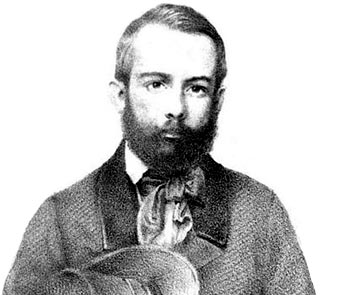
José Fornaris and Luque; (Bayamo, 1827 - Havana, 1890) Cuban writer. He graduated in law in 1852, the year in which, for political reasons, he was confined to Palma Soriano. He directed La Floresta Cubana (1855-1856) and La Piragua (1856-1857) and edited, in collaboration with J. Socorro León and J.L. Luaces, the poetic Cuba anthology (1855, 1858 and 1861). He is the author of Cantos del Siboney (1855), Cantos tropicales (1874) and El harpa del hogar.
José Fornaris studied law at the University of Havana; after completing his studies, he returned to his hometown, where he practiced as a lawyer and was alderman of the City Council, a position inherited from his father. Attracted by letters, he soon returned to Havana and began to cultivate poetry, while dedicating himself to teaching. His first literary essays appeared in La Prensa; in 1851 he published his first poetic collection, with a foreword by Dr. Lebredo.
Already in his young years, his adherence to the emancipatory cause had brought him the first uneasiness. In 1852 he was confined by the Spanish authorities in Palma Soriano, along with Carlos Manuel de Céspedes and Lucas Castillo Moreno. Five months the punishment lasted, and, in 1853, Fornaris settled again in Havana. At that time he founded El Colibrí and La Piragua, and published the anthology Cuba poética, in collaboration with Joaquín Lorenzo Luaces. A famous ode that he addressed to the captain general of the island, General Serrano, gave rise to various political incidents at that time. Until 1870, the year in which he had to undertake the exodus to Europe, Fornaris solidly cemented his poetic prestige.
His books are The Harp of the Home, The Book of Love, Flowers and Tears and Tropical Songs. Of his production, the Cantos del Siboney (1855) stand out above all, a collection of legends, some traditional and others imagined, in which he translates the feelings and customs of the indigenous population of the island into poetic language. The Cantos del Siboney made Fornaris the most valuable exponent of "siboneyismo", a literary current not exempt of interest. The influence of the poet from Bayamo was great in his time, and even though poets of little merit abounded among his followers, there were some of obvious worth, like Napoles Fajardo, called the Cucalambé.
A prolific and easy poet, incorrect at times, José Fornaris also wrote some didactic works, such as Elements of Rhetoric and Poetics, Compendium of Universal History and Figures of Rhetoric. He had to leave his homeland in 1870; for many years he lived in Paris, dedicated to teaching, and at the end of 1881 he returned to Havana, where he finally died.


